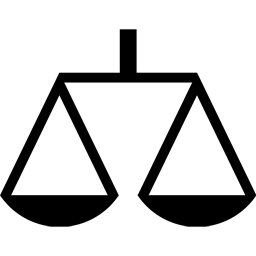Best Employer Lawyers in Senegal
Share your needs with us, get contacted by law firms.
Free. Takes 2 min.
Or refine your search by selecting a city:
List of the best lawyers in Senegal
About Employer Law in Senegal:
Employer law in Senegal governs the relationship between employers and employees in the country. It covers areas such as hiring practices, working conditions, termination of employment, and employee benefits. Understanding employer law is crucial for both employers and employees to ensure fair treatment and compliance with the law.
Why You May Need a Lawyer:
You may need a lawyer for employer-related issues in Senegal if you are facing wrongful termination, discrimination, harassment, or disputes over wages or benefits. A lawyer can provide legal advice, represent you in negotiations, and help you navigate the legal system to protect your rights.
Local Laws Overview:
Key aspects of employer law in Senegal include regulations on minimum wage, working hours, leave entitlements, and health and safety. Employers are required to comply with these laws to ensure a safe and fair working environment for their employees. It is important to be aware of these regulations to avoid legal problems.
Frequently Asked Questions:
1. What is the minimum wage in Senegal?
The minimum wage in Senegal is determined by the government and varies depending on the sector and type of employment.
2. Can an employer terminate an employee without cause?
No, employers in Senegal must have a valid reason for terminating an employee. Wrongful termination can lead to legal action against the employer.
3. Are employers required to provide benefits such as health insurance?
Employers in Senegal are required to provide certain benefits to employees, such as health insurance, depending on the size of the company and the nature of the work.
4. How many hours can an employee work per week?
The standard workweek in Senegal is 40 hours, with a maximum of 8 hours per day. Overtime may be allowed under certain conditions.
5. Can an employer discriminate against employees based on gender or religion?
No, discrimination based on gender, religion, or other protected characteristics is illegal in Senegal. Employers must treat all employees fairly and equally.
6. How can I file a complaint against my employer?
You can file a complaint with the Ministry of Labor or seek legal assistance to file a lawsuit against your employer for any violations of labor laws.
7. Is there a probation period for new employees in Senegal?
Yes, employers can establish a probation period for new employees to assess their performance and suitability for the job.
8. Can an employer change the terms of employment contracts unilaterally?
No, employers cannot change the terms of employment contracts unilaterally without the consent of the employee. Any changes must be agreed upon by both parties.
9. Are employees entitled to maternity or paternity leave?
Yes, employees are entitled to maternity leave for female employees and paternity leave for male employees under the labor laws in Senegal.
10. What are the rights of employees in case of workplace accidents?
Employees have the right to compensation and medical benefits in case of workplace accidents under the social security system in Senegal. Employers are required to provide a safe working environment to prevent accidents.
Additional Resources:
For additional resources and information on employer law in Senegal, you can contact the Ministry of Labor, the Senegal National Social Security Fund, or seek legal advice from a qualified employment lawyer.
Next Steps:
If you need legal assistance with employer-related issues in Senegal, it is advisable to consult with an experienced employment lawyer who can provide personalized advice and representation to protect your rights. Be prepared to gather relevant documents and information related to your case for the lawyer to review.
Lawzana helps you find the best lawyers and law firms in Senegal through a curated and pre-screened list of qualified legal professionals. Our platform offers rankings and detailed profiles of attorneys and law firms, allowing you to compare based on practice areas, including Employer, experience, and client feedback.
Each profile includes a description of the firm's areas of practice, client reviews, team members and partners, year of establishment, spoken languages, office locations, contact information, social media presence, and any published articles or resources. Most firms on our platform speak English and are experienced in both local and international legal matters.
Get a quote from top-rated law firms in Senegal — quickly, securely, and without unnecessary hassle.
Disclaimer:
The information provided on this page is for general informational purposes only and does not constitute legal advice. While we strive to ensure the accuracy and relevance of the content, legal information may change over time, and interpretations of the law can vary. You should always consult with a qualified legal professional for advice specific to your situation.
We disclaim all liability for actions taken or not taken based on the content of this page. If you believe any information is incorrect or outdated, please contact us, and we will review and update it where appropriate.
Browse employer law firms by city in Senegal
Refine your search by selecting a city.













